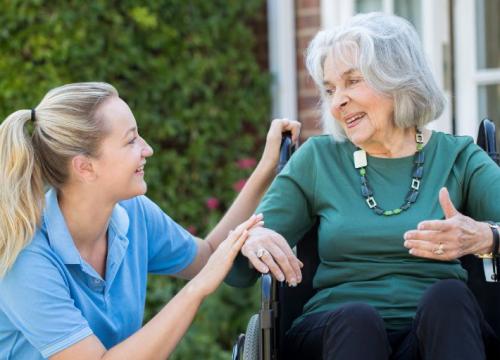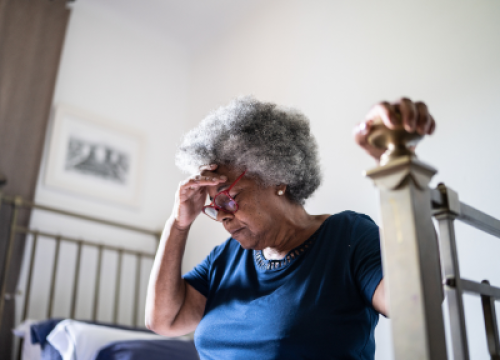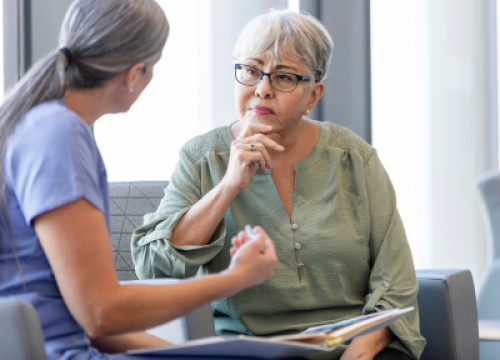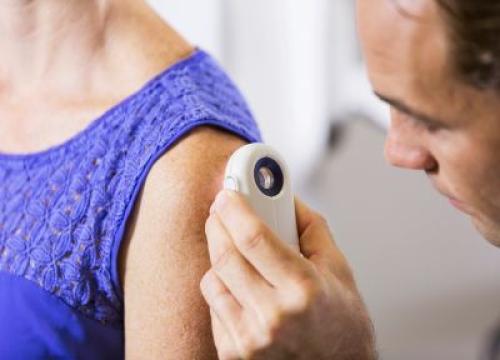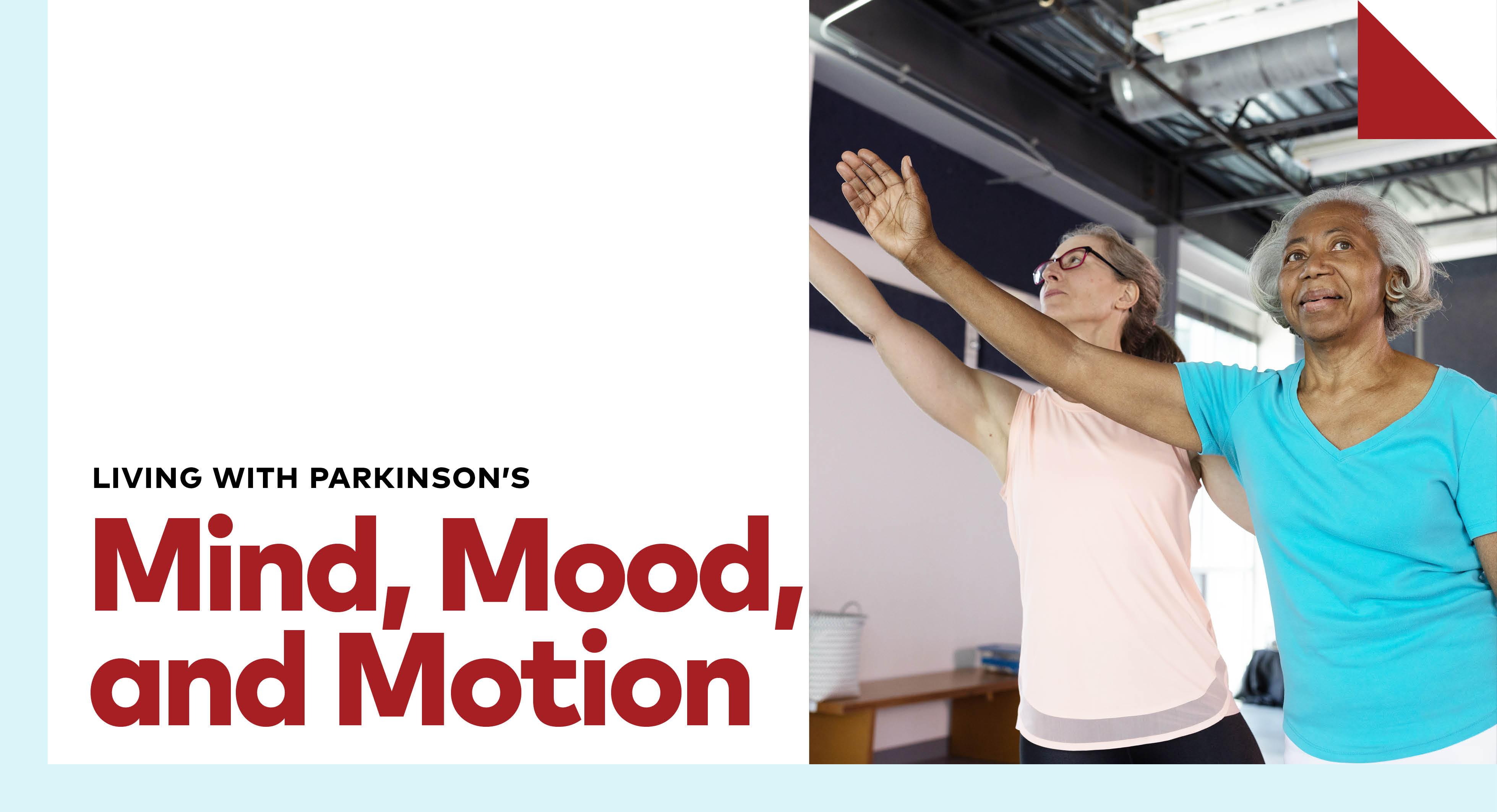Finding Balance: 8 Tips for Avoiding Caregiver Burnout
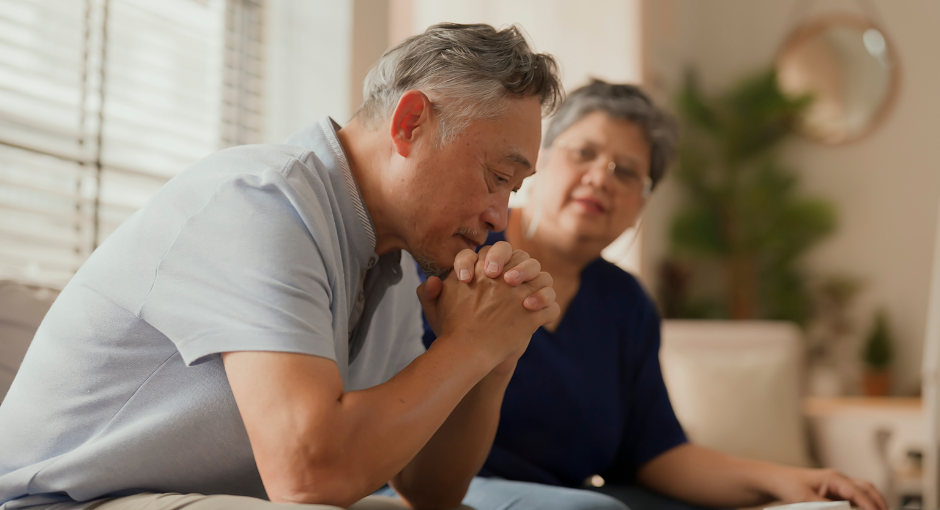
November is National Family Caregivers Month, a time to honor those who care for their loved ones. This year, the Parkinson’s Foundation is highlighting the importance of caregiver well-being and acknowledging the challenges of burnout. Addressing caregiver burnout is essential, as it often affects both the caregiver's health and the quality of care provided.
Caregivers play a crucial role in the lives of people with Parkinson's disease (PD), providing invaluable support and assistance that enhances their quality of life. Life does not stop with a PD diagnosis — but PD and its symptoms change over time, as does the role of a care partner.
Being a care partner can be rewarding, but the stress and change of caring for someone can be emotionally, mentally and physically draining. Recognizing caregiver burnout and its signs is essential for maintaining your well-being and providing the best possible care for your loved one.
What is caregiver burnout?
Caregiver burnout is a state of physical, emotional and mental exhaustion that may include a change in attitude, from positive and caring to negative and unconcerned. Burnout can occur when caregivers don't get the help they need, or if they try to do more than they are able, physically or financially.
Caregiver burnout symptoms can include:
-
Fatigue
-
Irritability, frustration or anger
-
Feelings of hopelessness or helplessness
-
Changes in sleep patterns
-
Withdrawal from social activities
Why Addressing Caregiving Burnout is Important
Addressing caregiver burnout helps preserve the caregiver's well-being, ensures quality care for loved ones and fosters a supportive caregiving environment overall.
You cannot pour from an empty cup. It’s important to give yourself time to rest and fill up. As a care partner, your well-being is foundational to sustaining compassionate care and providing support to your loved one.
If you’re experiencing symptoms of caregiver burnout or are aiming to prevent it, here are eight tips that can help:
Tip 1: Make Time for Yourself
Carve out moments for self-care and relaxation. Taking breaks allows you to recharge mentally and emotionally, reducing the risk of burnout.
Balance is key. While caring for others is important, neglecting your own needs can lead to exhaustion. Whether it's a short walk, reading a book or pursuing a hobby, these moments of respite are crucial for maintaining your well-being and sustaining your ability to provide support to your loved one over the long term.
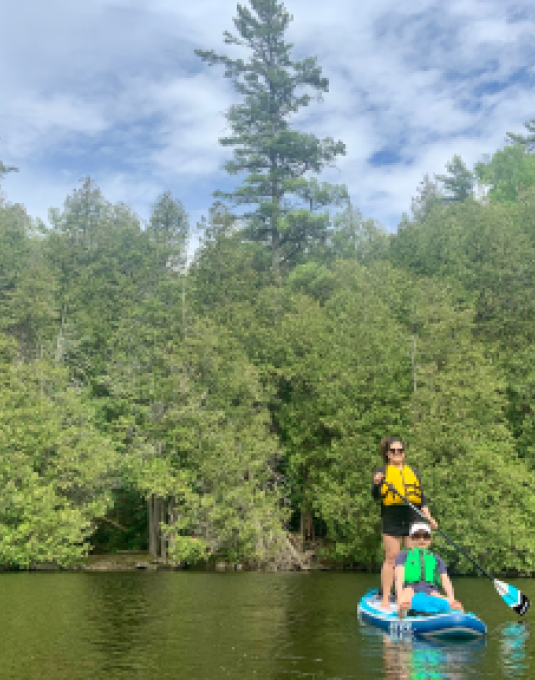
Since she was 15 years old, Carla Velastegui has been a care partner to her mother. She has learned along the way that taking time for herself is crucial to avoiding burnout.
Tip 2: Set Realistic Expectations
Be realistic about what you can handle. Prioritize tasks and focus on what's most important. Understand your capabilities and limitations and ask for help when you need it.
Tip 3: Celebrate Small Victories
Celebrate small victories and recognize the progress you’ve made in your caregiving journey. These milestones, whether big or small, serve as reminders of your dedication and the positive impact of your efforts on your loved one's well-being.
Tip 4: Delegate and Accept Help
Even if you are the sole care partner for your loved one, don’t be afraid to ask for outside help. Whether that be family, neighbors, friends or professionals, know that you don’t have to do everything on your own. Asking a family member to sit and watch TV with your loved one while you go to the movies can be a welcome mini break.
There are also many communities and online resources for care partners that offer support, information and practical advice to navigate the challenges of caregiving.
Tip 5: Seek Emotional Support
If you're unsure about what to expect or how to manage certain aspects of caregiving, don't hesitate to seek advice from healthcare professionals, support groups or experienced caregivers. They can provide valuable insights and practical tips based on their expertise.
Connecting with others who understand your situation can be an effective way to reduce feelings of isolation and self-doubt as a caregiver.
Going to therapy can also be a huge help in managing stress, providing a safe space to express your emotions, gaining perspective on challenges and developing coping strategies.
Tip 6: Exercise Regularly and Get Enough Sleep
While easier said than done for many, regular exercise has been linked to lower depression and stress levels. Find something you enjoy — whether it’s a walk in nature, yoga or going to a workout class. Exercise may also help you sleep better at night.
Aim for seven to nine hours of sleep at night to maintain your physical and emotional health, which is crucial for effectively and sustainably managing the duties of caregiving.
Tip 7: Stay Organized
Staying organized can be a simple but effective way to reduce stress levels. Keeping track of appointments, medications and important information can help you avoid feeling overwhelmed.
As a caregiver, you know some things are out of your control. Control what you can and try to stay flexible, keeping in mind some days (or hours) are better than others when it comes to PD symptoms.
Tip 8: Incorporate Stress-Relief Techniques into Your Daily Routine
Incorporating stress-relief techniques into your daily routine can improve your ability to manage burnout. Techniques like deep breathing exercises help calm the mind and reduce physical tension. Meditation offers a chance to practice mindfulness, allowing you to step back from stressors and regain perspective.
Caregiver burnout can affect anyone helping a loved one with Parkinson's. Incorporating just some of these tips can help you avoid burnout and prioritize your own needs.
We're here for care partners. For more information:
-
Visit For Care Partners
-
Sign up for free online courses through our Care Partner Program
-
Join PD Conversations: Caregiving to meet other care partners in our online community. Read the ongoing conversation about burnout.
-
Contact our toll-free Helpline at 1-800-4PD-INFO (1-800-473-4636) or Helpline@Parkinson.org.
Related Materials
My Parent Has Parkinson's. What Does It Mean?
Intimacy and PD
Impulse Control
Related Blog Posts
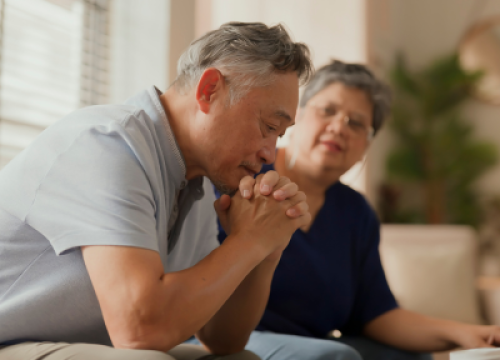
Finding Balance: 8 Tips for Avoiding Caregiver Burnout

Top 10 Essential Caregiver Resources
